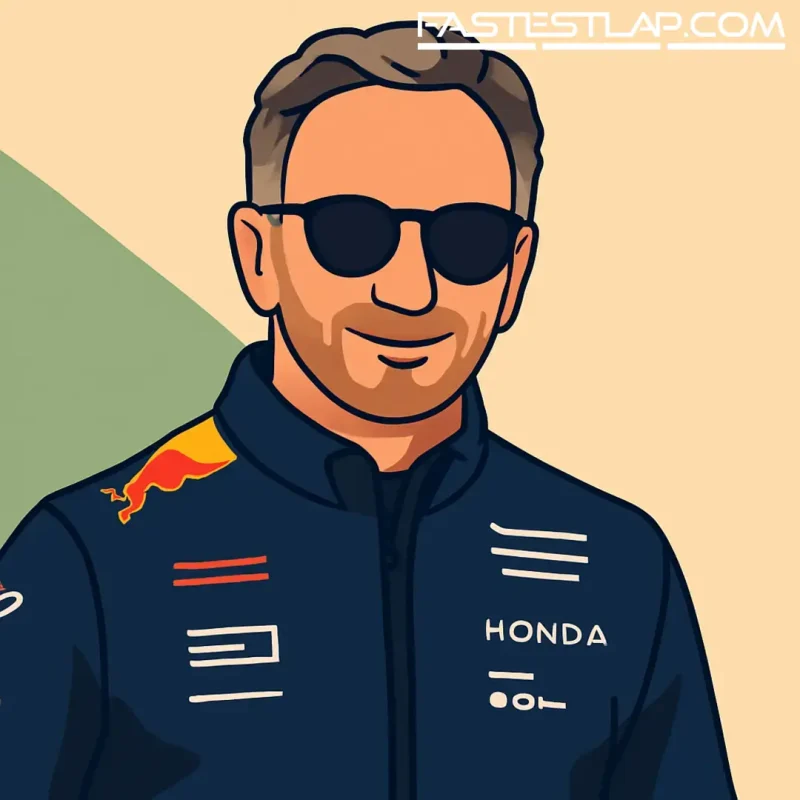Red Bull books a slim profit from 2024 as Horner’s salary ticks up before blockbuster exit
Red Bull Racing’s 2024 balance sheet makes for neat, if not jaw-dropping, reading: revenue north of £314 million, a modest post-tax profit, and one final pay rise for Christian Horner before his dramatic departure.
Company filings lodged in the UK confirm that Red Bull’s turnover for 2024 reached £314.409 million, covering sponsorship and promotional income, prize money, bonus payments and contributions to the race programme. The team posted a post-tax profit of £1.681 million — up on the previous year — as income climbed by roughly £7 million against its all-conquering 2023 campaign.
The sporting context is notable. Red Bull finished second in the 2024 Constructors’ Championship but still cashed in on title-winner prize money from 2023. Under the Concorde Agreement, Formula 1’s commercial rights holder distributed around $1.266 billion in prize money; estimates put Red Bull’s share at roughly $87.5 million (£64.75m). The rest of the turnover — in the region of £250 million — was driven by sponsors and commercial deals, the true engine room of a modern superteam.
On the partner side, 2024 looks like a last lap for a few big numbers. The team’s relationship with crypto firm ByBit, which began in 2022, has reached its end ahead of the 2025 season. The deal was reportedly worth around £110 million over three years, with approximately £35 million attributable to the 2024 accounts. Oracle, by contrast, is estimated to be contributing roughly double that figure, a headline partnership long credited internally to Christian Horner and group marketing and commercial officer Olly Hughes. In short: the commercial pipeline remained muscular even with the on-track silver medal.
Inside the directors’ room, the filings list Horner as the highest-paid director, with Helmut Marko the only other director named. Horner’s remuneration for 2024 came in at £7.046 million — a modest £46,000 increase on the previous year. The raise reads almost quaint in the shadow of what came next.
Horner is now out. After being placed into a non-operational role in the aftermath of the British Grand Prix, he officially departed the team and agreed an early termination settlement understood to be around $100 million (£74m). On face value, that looks rich for a contract reportedly running until at least 2030. But that headline doesn’t account for performance bonuses, commissions, and wider entitlements tied to the web of Red Bull’s F1-related businesses where Horner also held directorships. His involvement in major commercial agreements — including the recent tie-up with Carlyle — would only have inflated potential commission values. In that light, the figure is eye-watering, yes, but hardly inexplicable.
As ever in the cost-cap era, the real story sits between the lines. A £1.68m profit on a £314m turnover is the kind of razor-thin margin you’d expect from a front-running F1 outfit squeezing performance under a financial ceiling, especially one balancing top-tier driver salaries, escalating freight and energy costs, and ever more complex development programmes. Turning any profit while fighting for a championship is, in accounting terms, a win.
The commercial picture for 2025 will be worth watching. ByBit exits, Oracle remains the tentpole, and Red Bull’s sponsorship bench is deep enough that few expect holes to show on the livery for long. The team’s ability to monetise success — even in a year where it didn’t top the constructors’ table — remains formidable.
The leadership story is the more delicate variable. Horner’s imprint on Red Bull’s modern era is undeniable, from drivers and culture to the deal-making that kept the money flowing. Removing such a figure creates shockwaves that can take time to settle, even inside a well-drilled operation. But Red Bull has long marketed itself as a system, not a one-man band. Its 2024 financials suggest the machine kept humming while the politics played out.
With the 2025 Formula One World Championship rolling on and the grid reshaped by winter moves, Red Bull enters the new campaign with the resources, sponsors and technical firepower you’d expect of a title threat. The company accounts simply confirm what the paddock already knows: the team remains a commercial heavyweight, even as it turns the page on one of the longest-running leadership chapters in modern F1.




